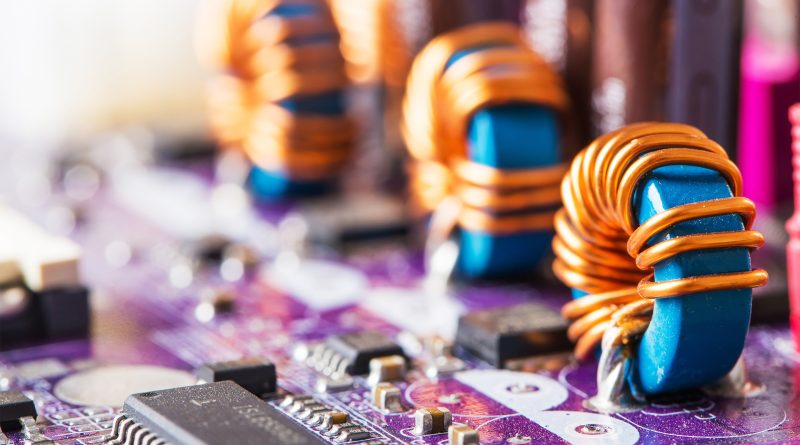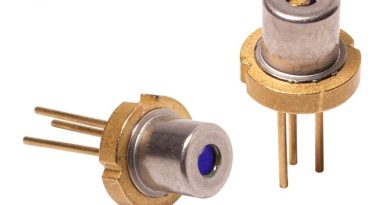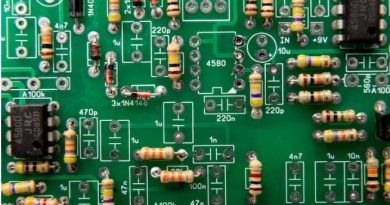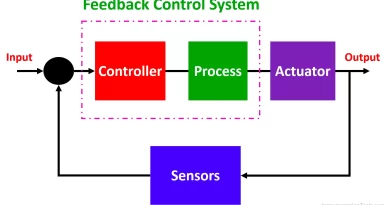What are Control Systems in Electrical Engineering – Basics Explained
What are Control Systems in Electrical Engineering – Basics Explained
A control system is a system that manages, commands, directs, or regulates the behavior of other devices or systems to achieve a desired result or norm in the field of Electrical Engineering. It does this through control loops, a process designed to maintain or vary a variable quantity or set of quantities. A control system may be operated by different means, such as electricity, mechanical, or fluid pressure.
A control system consists of three main components: an input, a controller, and an output. The information is the signal or data that specifies the desired behavior or setpoint of the system. The controller is the device or software that processes the input and generates the control action or signal. The output is the signal or data representing the system’s actual behavior or process variable.
A control system can be classified into two types: open-loop and closed-loop. An open-loop control system is a system where the control action from the controller is independent of the output or process variable. An example of an open-loop control system is a timer that switches on and off a heater regardless of the room temperature. A closed-loop control system is a system where the control action from the controller depends on the output or process variable. An example of a closed-loop control system is a thermostat that switches on and off a heater based on the feedback from a temperature sensor.
How do Control Systems Work?
Control systems work by applying various principles and techniques of control theory, a branch of mathematics and engineering that studies the behavior and stability of dynamic systems. Control theory uses various methods and tools to analyze, design, and optimize control systems.
One of the most fundamental concepts in control theory is feedback, which is using the output or process variable to influence the input or setpoint. Feedback can be positive or negative depending on whether the deviation from the desired behavior increases or decreases. Positive feedback can lead to instability or oscillation, while negative feedback can lead to stability or convergence.
Another important concept in control theory is stability, which is the property of a system that determines whether it will remain in a bounded region around its equilibrium point or diverge to infinity. Stability can be analyzed using various criteria and methods, such as Lyapunov stability, Bode plots, Nyquist plots, root locus plots, etc.
One of the most common techniques in control theory is PID control, a type of feedback controller that uses proportional, integral, and derivative actions to adjust the control action based on the error between the setpoint and the process variable. PID controllers are widely used in various applications because they are simple, robust, and effective.
What are the Types and Applications of Control Systems?
Control systems can be classified into various types based on different criteria, such as:
- The nature of the input and output signals: analog or digital
- The number of inputs and outputs: single-input single-output (SISO) or multiple-input multiple-output (MIMO)
- The structure of the controller: centralized or decentralized.
- The time domain of the system: continuous-time or discrete-time
- The frequency domain of the system: linear or nonlinear
- The state space representation of the system: observable or unobservable
Control systems have many applications in various fields and domains, such as:
- Aerospace engineering: Control systems are used to design and operate aircraft, rockets, satellites, etc. They are used for various purposes, such as guidance, navigation, attitude, flight, propulsion, etc.
- Biomedical engineering: Control systems model and regulate biological processes, such as blood pressure, glucose level, heart rate, etc. They are also used to design and operate medical devices, such as artificial organs, pacemakers, ventilators, etc.
- Chemical engineering: Control systems monitor and optimize chemical processes, such as distillation, fermentation, polymerization, etc. They are also used to design and operate chemical plants, such as reactors, separators, heat exchangers, etc.
- Electrical engineering: Control systems generate, transmit, distribute, and consume electric power. They are also used to design and operate electrical devices, such as motors, generators, transformers, inverters, etc.
- Mechanical engineering: Control systems are used to design and operate mechanical systems, such as robots, vehicles, machines, etc. They also control various physical parameters, such as position, velocity, acceleration, force, torque, etc.
Why are Control Systems Important?
Control systems are important for modern technology and society because they can:
- Improve the performance and efficiency of systems and devices.
- Enhance the safety and reliability of systems and devices.
- Reduce the cost and waste of resources and energy.
- Enable the automation and integration of systems and devices.
- Expand the functionality and capability of systems and devices.
Control systems are also important for advancing the knowledge and understanding of various phenomena and processes, such as:
- The dynamics and behavior of complex systems
- The interaction and coordination of multiple agents
- The adaptation and learning of intelligent systems.
- The emergence and evolution of collective behavior
Control systems are a fascinating and rewarding field that requires a solid foundation and understanding of various concepts, principles, and techniques, such as:
- Control theory: The mathematical analysis and design of control systems
- Control engineering: The practical implementation and application of control systems
- Control algorithms: The computational methods and procedures for control systems
- Control devices: The hardware components and elements for control systems
If you are interested in learning more about control systems, you can check out these resources:
- Control Systems – Introduction | Tutorials point: A blog post introducing control systems’ basics.
- Control Systems | Classification, Definition & Examples: A blog post that explains the classification, definition, and examples of control systems.
- Circuit Analysis: An online course covering circuit analysis basics using various methods and examples.
- Control System Definition, Types, Applications, and FAQs: A blog post that answers some frequently asked questions about control systems.
Frequently Asked Questions (FAQs)
1. What is a control system in electrical engineering?
- A control system is a set of devices or components designed to manage, regulate, and control the behavior of dynamic systems or processes.
2. Why are control systems essential in electrical engineering?
- Control systems are crucial for achieving desired system performance, stability, and accuracy in various electrical applications.
3. What is the primary objective of a control system?
- The primary objective is to maintain a system’s output within desired limits or to track a reference input while compensating for disturbances.
4. What are the key components of a control system?
- Components include sensors, actuators, a controller, and a feedback loop.
5. What is feedback in a control system, and why is it important?
- Feedback is the process of measuring the system’s output and comparing it to the desired reference value. It’s essential for error correction and maintaining system stability.
6. Are there different types of control systems in electrical engineering?
- Yes, control systems can be categorized into open-loop (non-feedback) and closed-loop (feedback) systems, each with its advantages and disadvantages.
7. What are the differences between open-loop and closed-loop control systems?
- Open-loop systems do not use feedback, making them less accurate, while closed-loop systems use feedback to adjust the control action, improving accuracy and stability.
8. Where are control systems used in electrical engineering applications?
- Control systems are used in various applications, including industrial automation, robotics, power generation, HVAC systems, and automotive systems.
9. How does a proportional-integral-derivative (PID) controller work?
- A PID controller adjusts the control output based on the proportional, integral, and derivative components of the error signal, improving control performance.
10. What is the role of sensors in a control system?
- Sensors measure physical variables such as temperature, pressure, or position and provide input to the controller for decision-making.
11. What is the importance of actuators in control systems?
- Actuators are responsible for executing the control action by adjusting system variables based on controller instructions.
12. Can you give an example of a control system in everyday life?
- An example is a thermostat in a heating system, where the controller maintains the room temperature by adjusting the heater based on temperature measurements.
13. How do control systems help in electrical power generation?
- Control systems regulate the generation and distribution of electrical power, ensuring grid stability and efficient power delivery.
14. What are the challenges in designing and implementing control systems?
- Challenges include system modeling, controller design, dealing with uncertainty, and real-time control in complex systems.
15. How can I learn more about control systems in electrical engineering?
- You can study control systems through courses in electrical engineering, robotics, or automation. Numerous books, online resources, and simulations are also available to help you grasp the concepts and principles of control systems.



